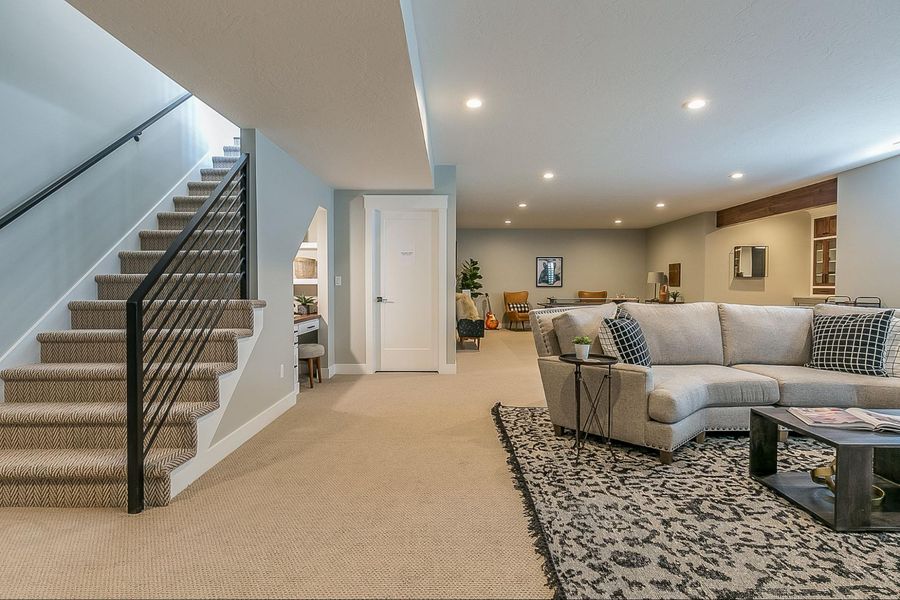While many are familiar with earning income through short-term rentals like Airbnbs or long-term leases, there are other creative ways to generate extra money from your existing properties. Whether you have unused space, need options for periods of vacancy, or are looking for additional income streams, there are alternative options that can help you maximize your property’s potential.
Renting Out Storage Space
In Canadian cities where housing is at a premium, storage space is often in high demand. If you have unused areas like a garage, basement, or even a large shed, consider renting them out for storage. This side hustle allows you to generate income from space that would otherwise go unused.
There are platforms like SpaceiShare available which allow you to list your available space and connect with renters looking for affordable storage. Renting out storage space can provide a passive income stream and generally involves less management than renting to tenants. Your storage spaces will need to meet security and other requirements to be listed.
Leasing to Film and TV Productions
If your property is in a Canadian hotspot for film and TV production, like Toronto, Vancouver, and Montreal, there may be additional opportunities for it, either as accommodations for crews or as a film set.
Unique and attractive properties might be considered for film sets, and can earn significant income. Whether your property is a downtown condo, a suburban home, or a rural farmhouse, it might be just what a production company is looking for.
Additionally, quality living spaces near filming locations may be leased by production companies for housing film crews.
Offering Parking Spaces
In cities with high-density areas like downtown Toronto, Vancouver, or Montreal, parking can be both scarce and expensive. If you own a property with suitable parking spaces, you can rent them out.
There are Canadian platforms to list your available parking spaces for rent. This side hustle is particularly lucrative near business districts, universities, hospitals, or event venues where parking demand is consistently high. By renting out your parking space, you can generate a steady income stream with little to no additional work.
Providing Flexible Spaces for Events, Meetings, or Pop-Ups
If you have a larger property or commercial space that isn’t fully utilized, consider renting it out for flexible business spaces, community meeting areas, pop-up events or markets and other flexible space rentals.
More organizations are looking for affordable options for flexible meeting and gathering spaces. Pop-up shops, food markets, and even local community events are becoming increasingly popular across Canadian cities, especially in areas where traditional retail spaces are costly.
Websites like Pop-Up Go help connect property owners with businesses or event organizers looking for temporary spaces. This can be an excellent way to monetize your property on weekends or during slow seasons, turning otherwise idle space into a money-making venue.
Catering to Corporate Clients
If your property is in a city with a strong business presence, such as Toronto, Calgary, or Ottawa, consider marketing it to corporate clients. Corporate rentals are often short-term but longer than typical vacation rentals, catering to business travellers or employees on temporary assignments.
These rentals often earn higher rates than regular short-term leases, and companies are typically willing to pay a premium for well-furnished, conveniently located properties.
Renting Out Workshop or Studio Space
If you have a garage, workshop, or other functional space, renting it out to local businesses or hobbyists can be another option. Small business owners, artists, and tradespeople often struggle to find affordable spaces to work, especially in urban centers.
You can tap into this market by connecting directly with local businesses through community boards or social media or searching for local platforms.
Thoroughly Research All Requirements
Before diving into any real estate side hustle, it’s crucial to check your local, municipal, and zoning regulations. Different areas have specific rules and restrictions regarding how properties can be used, especially when it comes to activities like hosting events or offering storage spaces. Failing to comply with these regulations can lead to fines, legal issues, and forced closure of your side hustle. Always consult with your local zoning office and review any applicable bylaws or ordinances to ensure your plans align with legal requirements.
It’s also essential to thoroughly research the requirements and potential challenges involved. Consider factors like the added security concerns of having more people or strangers accessing your property, the increased wear and tear on your space, and the extra time and effort you’ll need to commit to managing these activities. Understanding these aspects in advance will help you make informed decisions, ensuring that your side hustle is both manageable and sustainable. Proper planning can prevent unexpected issues and help you maximize the benefits of your new venture.








